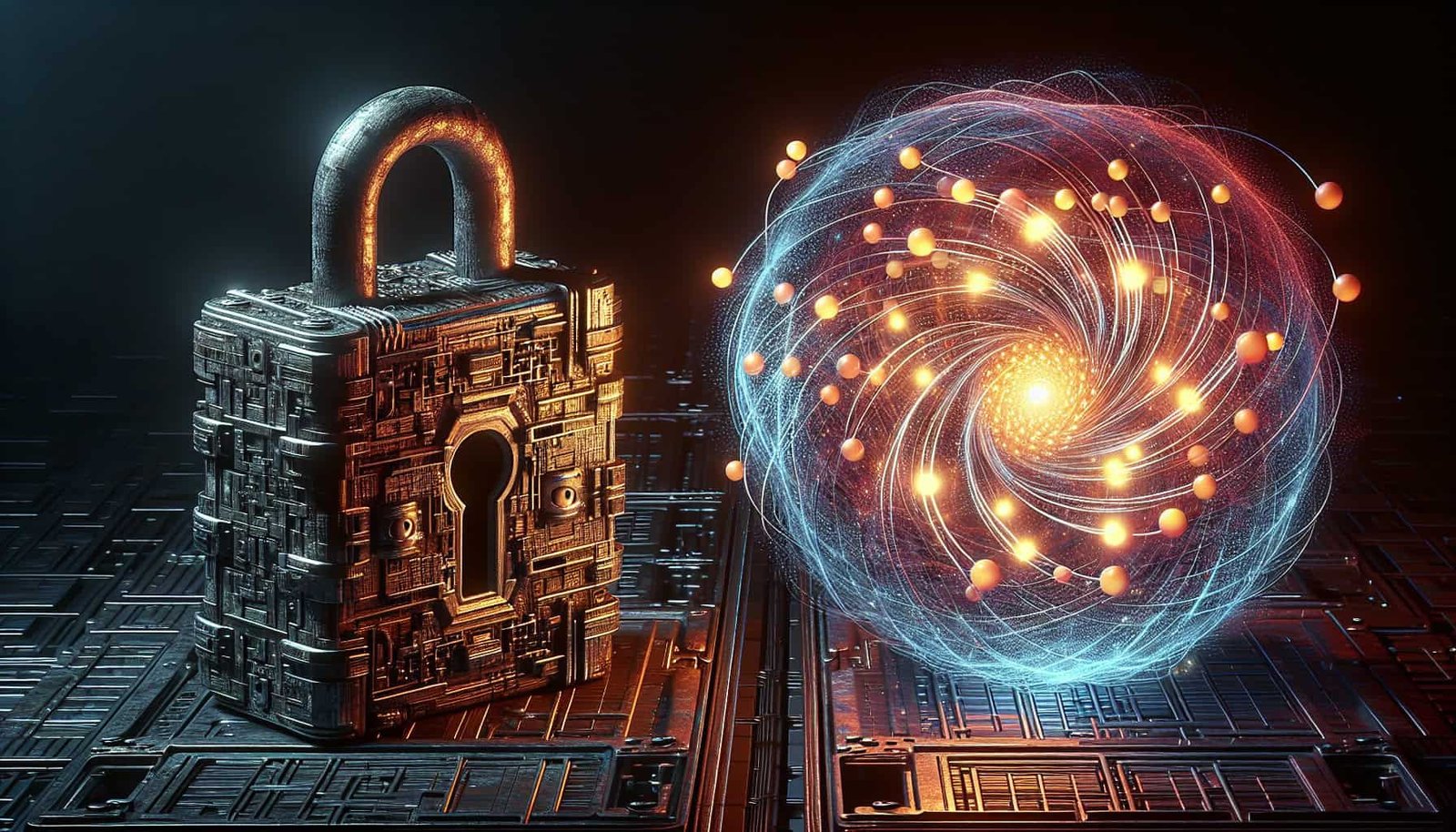Imagine a world where our secrets are under constant threat of being accessed by malicious individuals. Enter quantum-resistant cryptography – a cutting-edge field that aims to protect our sensitive information from the looming threat of quantum computers. In this article, we will dive into the exciting world of quantum-resistant cryptography and explore the innovative solutions being developed to secure our digital future. Brace yourself for a mind-boggling journey as we unravel the mysteries and potential of this groundbreaking technology.
The Exploration Of Quantum-resistant Cryptography
Cryptography has long been used to secure our digital communication and protect our sensitive information. However, advancements in technology have given rise to the development of quantum computers, which have the potential to render current cryptographic systems vulnerable. In order to ensure the continued security of our data in the face of this threat, there has been a growing exploration of quantum-resistant cryptography – a field that focuses on developing encryption methods that can withstand attacks from quantum computers.
Development of Quantum Computers
Before diving into quantum-resistant cryptography, it is important to understand the development of quantum computers. Unlike classical computers, which operate on binary digits known as bits, quantum computers leverage the principles of quantum mechanics to utilize quantum bits, or qubits. These qubits can exist in multiple states simultaneously, allowing quantum computers to perform complex calculations at an unprecedented speed.
With the rapid advancement in quantum technology, it is only a matter of time before quantum computers become a reality. Major players in the technology industry, such as Google and IBM, are already making significant progress in developing practical quantum computers. As these quantum computers become more powerful, the traditional cryptographic algorithms we rely on today may no longer provide an adequate level of security.
Implications for Current Cryptography
The implications of quantum computers on current cryptography are significant. Classical cryptographic systems, such as the widely used RSA encryption, rely on the mathematical difficulty of factoring large numbers. However, Shor’s algorithm, a quantum algorithm, has the potential to efficiently solve the factoring problem, thereby breaking RSA encryption.
Similarly, Grover’s algorithm, another quantum algorithm, can significantly reduce the time required to perform a brute-force search. This poses a threat to symmetric cryptographic algorithms, which rely on the difficulty of finding the correct key among a large number of possibilities.
The advent of quantum computers necessitates a shift towards quantum-resistant cryptography. Without this transition, the security of our digital communication and sensitive information could be compromised.
Quantum Computing Threats to Cryptography
To understand the need for quantum-resistant cryptography, it is important to examine the specific threats posed by quantum computers to cryptographic systems.
One of the most notable threats comes from Shor’s algorithm, which has the potential to break the security of widely used public key cryptosystems. RSA encryption, which is based on the difficulty of factoring large numbers, would no longer provide a robust level of security against quantum computers.
Additionally, Grover’s algorithm poses a significant threat to symmetric cryptographic algorithms. It can drastically reduce the time required to perform a brute-force attack, making it easier for adversaries to crack encryption keys.
The potential for quantum computers to perform cryptanalysis at an accelerated pace also highlights the need for stronger encryption methods. As quantum computers become more powerful, traditional cryptographic systems may become increasingly vulnerable to attacks.
Types of Quantum-resistant Cryptography
Quantum-resistant cryptography encompasses a range of cryptographic algorithms that are designed to withstand attacks from quantum computers. These algorithms rely on different mathematical principles, offering a diverse set of approaches to securing our data in the quantum era.
One prominent category of quantum-resistant cryptography is lattice-based cryptography. Lattice-based encryption algorithms employ the mathematical theory of lattices to provide security that is resistant to attacks from both classical and quantum computers. These algorithms offer robust protection against quantum attacks and are considered a leading candidate for post-quantum cryptography.
Another category is code-based cryptography, which utilizes error-correcting codes to provide security against quantum attacks. By leveraging the difficulty of decoding error-correcting codes, code-based encryption algorithms offer a post-quantum alternative to traditional cryptographic systems.
Multivariate cryptography is yet another approach to quantum-resistant cryptography. It relies on the use of multivariate quadratic polynomials to provide security against quantum attacks. Multivariate cryptosystems offer a high level of security and have been extensively studied and analyzed.
Isogeny-based cryptography is a relatively new field that utilizes the mathematics of elliptic curves and isogenies to provide post-quantum security. Isogeny-based encryption algorithms offer advantages such as small key sizes and fast computational efficiency, making them a promising area of research in the field of quantum-resistant cryptography.
Hash-based cryptography is another approach to post-quantum security. It relies on the use of hash functions to provide collision resistance and tamper-proof properties. Hash-based cryptographic algorithms have been extensively studied and offer a strong level of security against attacks from quantum computers.

Post-quantum Replacements for Current Cryptosystems
In recognizing the need for quantum-resistant cryptography, the National Institute of Standards and Technology (NIST) initiated a competition to identify and standardize post-quantum cryptographic algorithms. This competition aims to select cryptographic solutions that can serve as replacements for our current cryptosystems.
Numerous promising post-quantum cryptographic algorithms have emerged as part of this competition. These algorithms demonstrate resistance to attacks from both classical and quantum computers and offer strong security guarantees.
However, the standardization and adoption of post-quantum cryptography present significant challenges. The transition from classical to quantum-resistant cryptography requires careful consideration of factors such as compatibility, performance, and interoperability. Additionally, there is a need for widespread education and awareness surrounding the importance of quantum-resistant cryptography to ensure its successful adoption.
In conclusion, the exploration of quantum-resistant cryptography is a crucial endeavor in the face of the rapid advancement of quantum computers. By developing and implementing encryption methods that are resistant to attacks from quantum computers, we can ensure the continued security of our digital communication and sensitive information in the quantum era. The diverse range of quantum-resistant cryptographic algorithms offers a promising path forward, but requires further research and standardization to become widely adopted. As we navigate the challenges of the quantum age, quantum-resistant cryptography will play a vital role in safeguarding our digital world.





